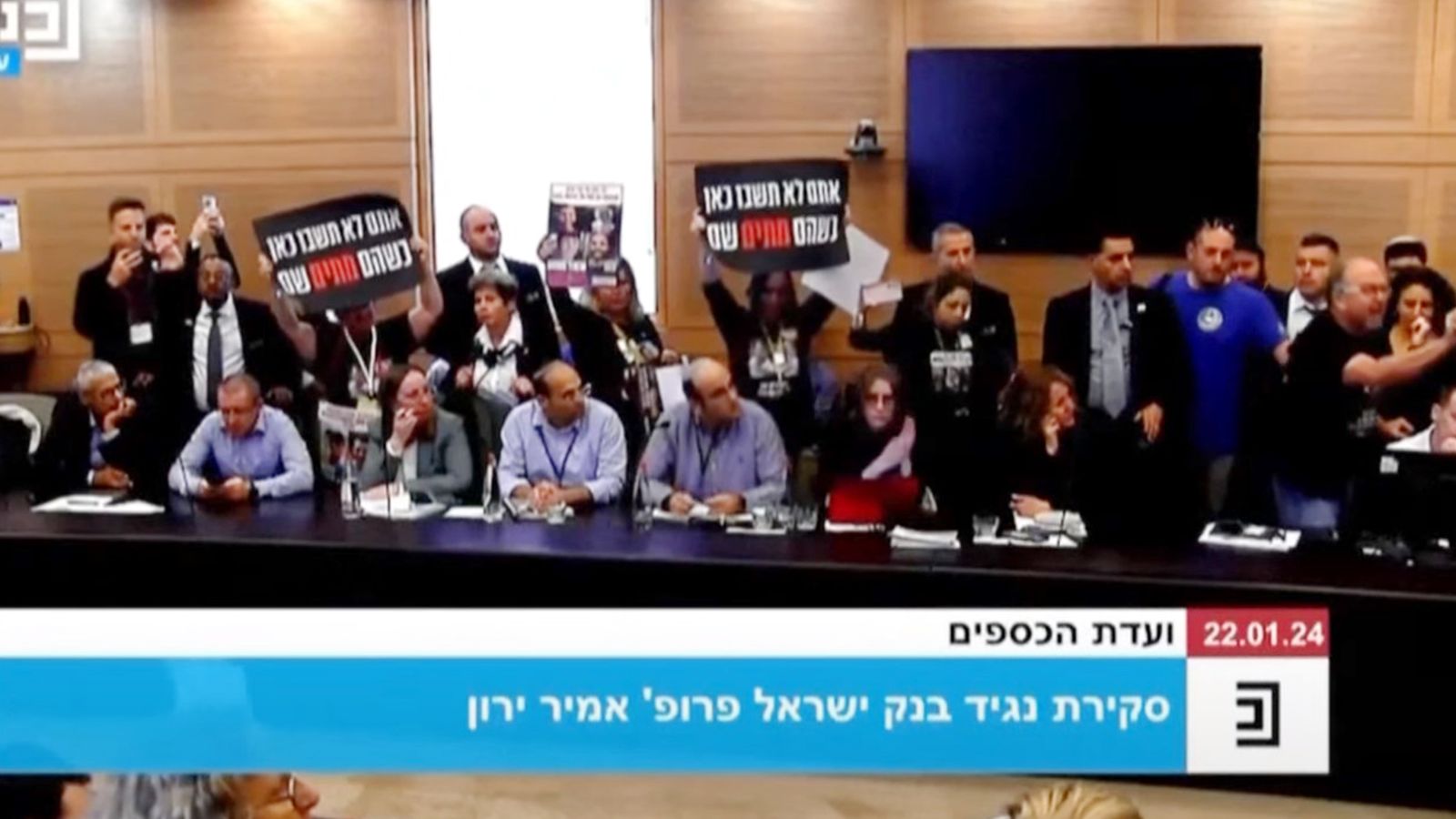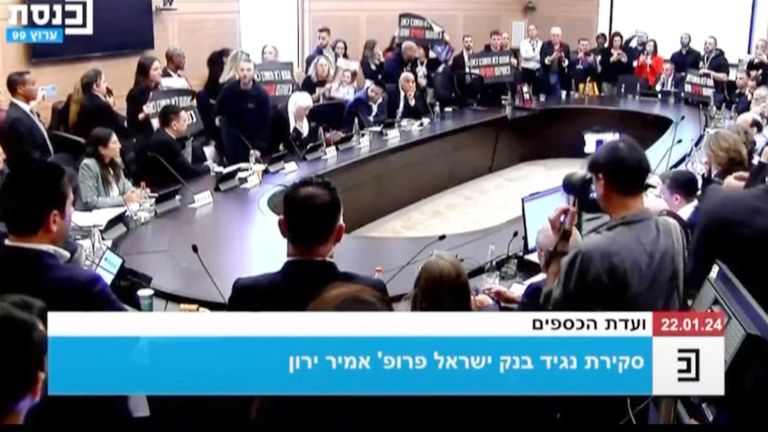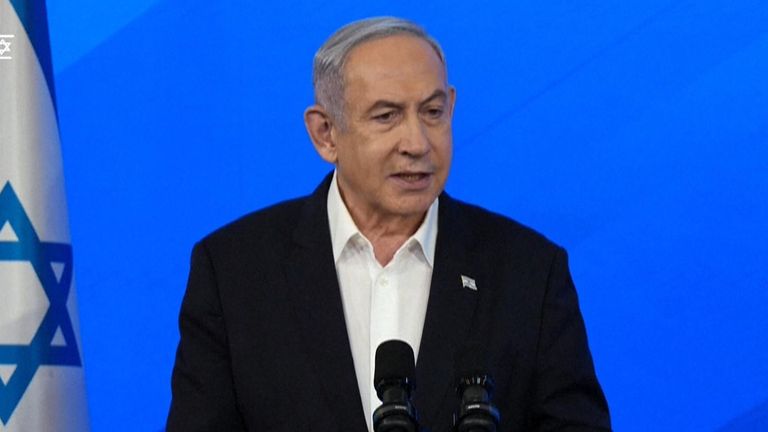Dozens of family members of the hostages held by Hamas in Gaza have stormed into a meeting in the Israeli parliament to demand action be taken to release their relatives.
They entered a Finance Committee meeting in the Knesset in Jerusalem and shouted “you won’t sit here while they are dying there!”.
One woman held up pictures of three family members who were taken and said: “Just one I’d like to get back alive, one out of three!”
Other protesters chanted: “Release them now, now, now!”
Parliamentary ushers, who are often quick to eject hecklers or protesters, stood by during the storming of the Knesset committee.
On Sunday night family members set up a protest tent in Jerusalem and vowed to stay there until the government reached a deal to bring the remaining hostages home.
Around 250 hostages were seized by Hamas when it rampaged across the border on 7 October. Some 130 remain in Gaza after others were brought home in a truce in November. Israel says 27 have died in captivity.
US, Qatari and Egyptian efforts to mediate another release seem far from reconciling Israel’s drive to destroy Hamas and the militant group’s demand Israel withdraws and frees all of the thousands of Palestinians, including senior militants, from its prisons.
It comes after Israeli Prime Minister Benjamin Netanyahu rejected conditions presented by Hamas to end the war and release hostages, which would have included Israel’s complete withdrawal and leaving Hamas in power in Gaza.
In response the Hostages and Missing Persons Families Forum demanded Mr Netanyahu “clearly state that we will not
abandon civilians, soldiers, and others kidnapped in the October debacle”.
“If the prime minister decides to sacrifice the hostages, he should show leadership and honestly share his position with the Israeli public,” it said in a statement.
Read more:
Netanyahu rejects calls for Palestinian state
Who are the key leaders of Hamas?
Palestinian deaths pass 25,000
The Hamas attack has led to the worst fighting in decades, with the initial assault killing some 1,200 people, mostly civilians.
Israel’s offensive has killed at least 25,105 Palestinians in Gaza and wounded more than 60,000, according to the Hamas-run health ministry. The ministry does not distinguish between civilians and combatants but says around two-thirds of those killed were women and children.
The Israeli military says it has killed around 9,000 militants, without providing evidence. It blames the high civilian death toll on Hamas because it positions fighters, tunnels and other militant infrastructure in dense residential areas.
Click to subscribe to the Sky News Daily wherever you get your podcasts
Some 85% of Gaza’s population of 2.3 million have fled their homes as Israel continues to strike all parts of the besieged enclave.
UN officials say one in four people in Gaza are starving as the ongoing fighting and Israeli restrictions hinder the delivery of humanitarian aid.
Netanyahu says war will not end until all hostages returned
It comes after Mr Netanyahu vowed the offensive in Gaza would continue until Hamas was destroyed and all the remaining hostages returned.
In a national televised news conference on Thursday he rejected US calls for the development of a Palestinian state, saying Israel “must have security control over the entire territory west of the Jordan River”.
Watch new foreign affairs show The World with Yalda Hakim from Monday to Thursday between 9pm and 10pm on Sky News.


